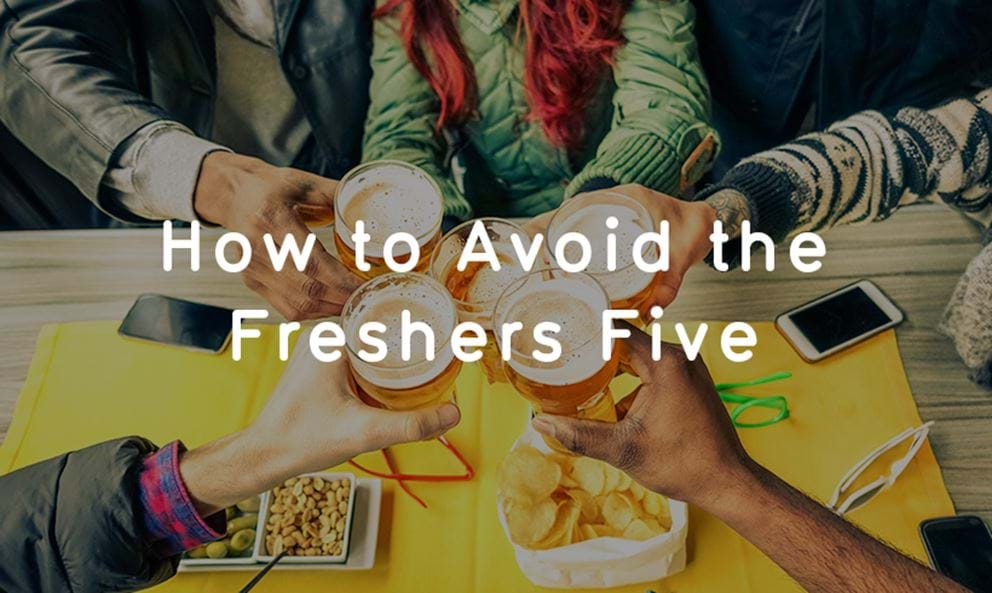How to Avoid the Fresher’s Five

The “Fresher’s Five” is that weight that you seem to gain inevitably when starting at University. Whether it’s because new students are eating more junk food, doing less exercise, drinking more beer, or all of the above, this phenomenon is responsible for a huge number of panic-induced gym subscriptions each year. Luckily, there are ways of avoiding this unhappy situation:
1. Set Some Cast-iron Diet Rules
Following a specific diet to the letter, with no exceptions, can be a bit tricky for a new student. It would probably mean having to pass up on a lot of nights out and social gatherings for one thing. Still, there are certain diet principles which you can apply to your life in general which, while not too rigid, can still yield great results.
The simplest technique for doing this involves deciding which foods you’re going to avoid, no matter what, or allowing certain foods only on certain days or on certain occasions. Good examples include: “I will not drink sugary soft-drinks unless I’m at a party,” “I will not eat bread, except for breakfast,” and “I will not eat chocolate bars or other sweets.”
2. Cook Your Own Meals
One of the reasons why freshers tend to pick up weight at a rapid pace is that they’re simply eating less wholesome home-cooked food. It’s an unfortunate habit of many new students to snack on take aways, ready meals, chocolate muffins, and whatever else can be grabbed and eaten quickly.
These processed foods are inevitably packed with processed sugar and other negative additives which promote weight gain. Even seemingly innocent products like fruit juice and breakfast cereal are often loaded with harmful sugars in the form of high-fructose corn syrup.[1]
A lack of free time may be a reason for taking the quick and easy way out as far as diet goes. However more often than not, it simply comes down to nothing more than good old-fashioned laziness and the absence of parent-prepared meals on demand.
One of the best ways of avoiding excess “hidden” calories (and keeping a good balance of important vitamins and minerals in your diet) is to commit to cooking your own meals and avoid processed ready-to-eat foods like the plague. This doesn’t have to be a very time-consuming or difficult process. The web is full of straightforward, free recipes for students.
3. Walk as Much as Possible
Good old fashioned walking may be one of the best ways to stay in shape. Research from the London School of Economics[2] compared the waistlines of those who took regular brisk walks to those who did intense manual labour or domestic chores and found that the walkers had smaller waists and better BMI scores.
If you really want to keep the Fresher’s Five at bay, take the opportunity to walk (briskly) as often as possible and avoid taking the bus, train, or car unless it’s absolutely necessary.
[1] http://www.more.com/lifestyle/exercise-health/eight-surprising-products-high-fructose-corn-syrup
[2] http://www.lse.ac.uk/newsAndMedia/news/archives/2015/11/Regular-brisk-walking-is-best-exercise-for-keeping-weight-down,-says-LSE-research.aspx


